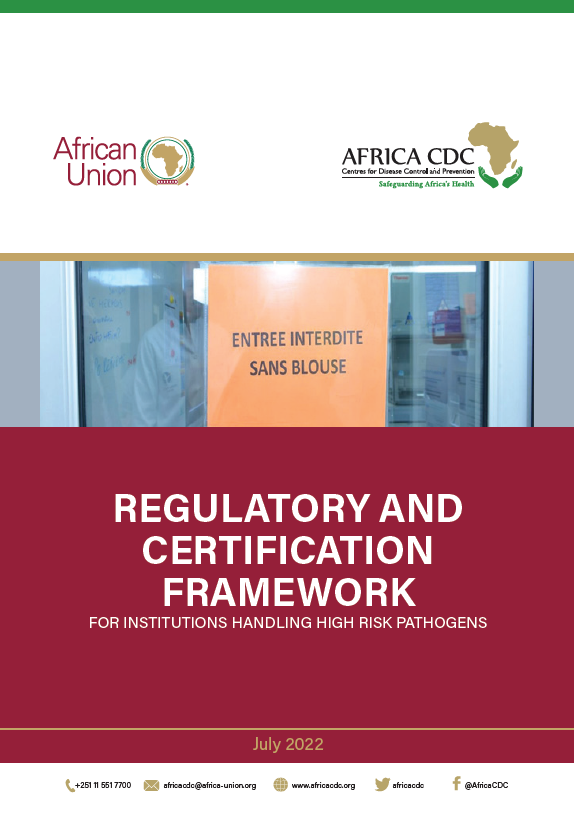The World Health Organization (WHO) Joint External Evaluation (JEE) technical assessments conducted between 2016-2019 and the Global Health Security Index (GHSI) of 2021 highlighted Africa Union (AU) Member States limited capacities in Biosafety and Biosecurity. In the GHSI report none of the participating AU Member states scored above 50% in Biosecurity and only 2 with at least 50% in Biosafety. Similarly, the average performance of the 42 AU Member States that participated in the WHO JEE assessments was 30% in Biosafety. The current COVI-19 pandemic has further exposed these documented capacity gaps.
In response, the Africa Centres for Disease Control and Prevention (Africa CDC), supported by its regional and global partners, in collaboration with AU Member States, in 2019 launched the Regional Biosafety and Biosecurity Initiative (BBI). The goal of the BBI is to strengthen the biosafety and biosecurity systems of AU Member States in order to build their capacities to meet requirements for biosafety and biosecurity as well as comply with the international requirements and regulations such as the International Health Regulations (IHR) (2005), the Biological Weapons Convention (BWC), and United Nations Security Council Resolution (UNSCR) 1540. The Initiative is being implemented in five broad areas of (i) Developing a Regional BSBS Legal Framework (ii) Establishing multi-expert Regional BSBS Technical Working Groups to coordinate and monitor implementation (iii) Establish a regulatory and certification framework for institutions handling high risk pathogens (iv) Strengthen National Public Health Institutes (NPHI) and National Reference Laboratory (NRL) capacities to prevent, detect and respond to events of public health concern in each Member State and (v) Establish a regional training and certification program for BSBS experts.
Regulatory and Certification Framework for Institutions Handling High Risk Pathogens
Currently, there are no regionally agreed minimum standards for biosafety and biosecurity for institutions handling high risk pathogens in the Africa Region, at a time when risk of a catastrophic biological event is increasing. To address that, Africa CDC, in collaboration with Member States has developed a Regulatory and Certification Framework for Institutions Handling High Risk Pathogens. The Framework sets the requirements for facilities handling High Consequence Agents and Toxins (HCATs) and guides the implementation of laboratory biosafety and biosecurity practices associated with the design, commissioning, routine operation safe and secure biocontainment laboratories.
The Framework has three components namely (i) minimum standards for biosafety and biosecurity for Institutions handling high risk pathogens (ii) standard evaluation checklist Member States can use to check institutions handling high risk pathogens for compliance and (ii) a certification framework Member States can use to authorize performance of various activities based on risk and level of compliance of the institution. See figure 1.
